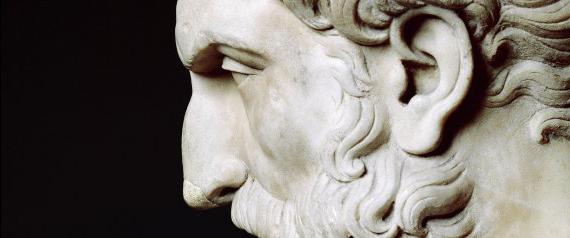Do you know such a thing as an epicurean? This word has recently begun to sound more and more often. Moreover, it is not always mentioned to the place. That is why it is appropriate to talk in more detail about the meaning and origin of this word.
Epicurus and Epicureans
In the III century. BC e. in Greece, in the city of Athens, there lived a man named Epicurus. He was an unusually versatile person. From his youth he was carried away by various philosophical teachings. Subsequently, however, he said that he was ignorant and self-taught, but this did not quite correspond to the truth. According to contemporaries, Epicurus was an educated man, endowed with the highest moral qualities, possessing an even character and who preferred the simplest lifestyle.

At 32, he created his own philosophical doctrine, and subsequently founded a school for which a large shady garden was acquired in Athens. This school was called the "Garden of Epicurus" and had many devoted students. Actually, the Epicurean is a student and follower of Epicurus. All his followers who attended school, the teacher called "philosophers from the garden." It was a kind of community in which modesty, the absence of excesses and a welcoming atmosphere reigned. There was a jug of water in front of the entrance to the “Garden” and a simple loaf of bread lay - symbols of the fact that a person needs very little in this life.
Epicureans, philosophy
Epicurus philosophy can be called materialistic: he did not recognize the gods, denied the existence of predestination or fate, recognized the right of a person to free will. The main ethical principle in the "Garden of Epicurus" was proclaimed pleasure. But not at all in that vulgar and simplified form, by which it was understood by most Hellenes.
Epicurus preached that in order to receive true satisfaction from life, one must limit one's desires and needs, and this is precisely the wisdom and prudence of a happy life. An epicurean is a person who understands that the main pleasure is life itself and the absence of suffering in it. The more immoderate and greedy people are, the more difficult it is for them to achieve happiness and the sooner they doom themselves to eternal discontent and fear.
The distortion of the teachings of Epicurus
Subsequently, the ideas of Epicurus were greatly distorted by Rome. "Epicureism" in the main provisions began to diverge from the ideas of its founder and approached the so-called "hedonism". In such a distorted form, the teachings of Epicurus have survived to this day. Modern people often rest assured that the Epicurean is one who considers his own pleasure to be the highest good of life and lives immoderately in order to increase the latter, allowing himself all sorts of excesses.
And since there are many such people around today, one would think that the present world is developing according to the ideas of Epicurus, although in fact hedonism rules the ball everywhere. In fact, in this modern society is close to Ancient Rome during its decline. It is well known from history that, in the end, the widespread corruption and excesses of the Romans led the once great empire to complete decline and destruction.
Famous followers of Epicurus
The ideas of Epicurus were very popular and found many supporters and followers. His school lasted for almost 600 years. Among the well-known supporters of the ideas of Epicurus is Tit Lucretius Car, who wrote the famous poem "On the nature of things", which played a big role in the popularization of epicureism.
Epicureism was especially widespread in the Renaissance. The influence of the teachings of Epicurus can be traced in the literary works of Rabelais, Lorenzo Valla, Raymondi and others. Subsequently, the supporters of the philosopher were Gassendi, Fontenel, Holbach, La Mettrie and other thinkers.